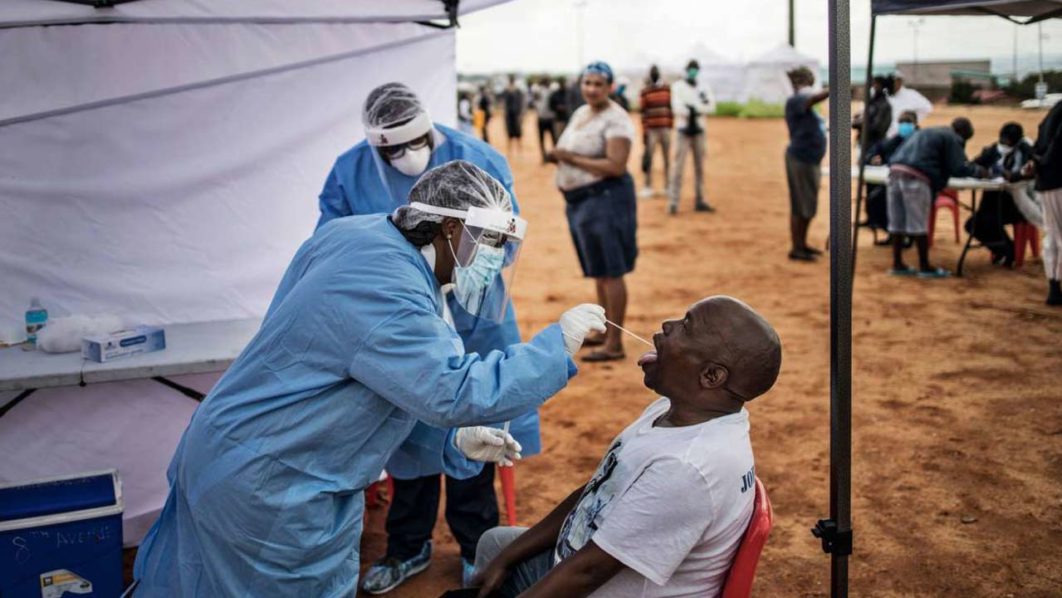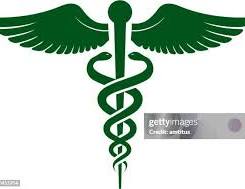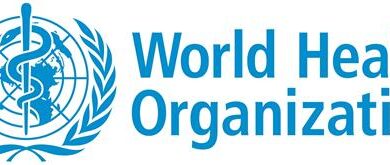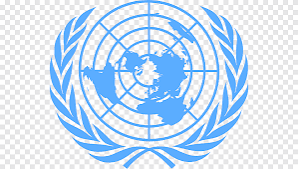COVID-19: Transitioning year 2021

Towards the end of 2020, Washington Post asked its readers to describe the year in a single word. The responses were as comical as they were insightful. From the hundreds of feedbacks received, “exhausting”, “lost” and “chaotic” came top as the most popular descriptions.
The three words are reflective of the trouble the global community had to stumble through in the year. Individuals were drained and exhausted as they struggled to cope with the new normal and bear the brunt of the additional financial burden that came along.
For students, other categories of people and even businesses whose ‘lives’ were paused, it was nothing short of a lost year. One could only marvel at the speed which the strange virus threw countries, businesses and individuals into unprecedented pandemonium. Perhaps, “chaotic” was the most suitable description but “exhausting” won the word-popularity contest.
And by mid-2020, it was already clear that 2021 would be a transitioning year. Certainly, the COVID-19 will continue to change the social landscape and human relations but the character of the new world it will unveil, many experts have argued, is still fluid and uncertain. Hence, a mathematician, perhaps, would label 2021 as undefined.
To show that the world is not ready to bet in 2021, economic projections (by most credible institutions) are largely conditioned by the character of the new strain of COVID-19, global response to the second wave as well as vaccine logistics/distribution.
For instance, the World Bank, last week, projected global economic growth of four per cent in the year, supposing “the initial COVID-19 vaccine rollout becomes widespread throughout the year” and policymakers move decisively to tame the pandemic as well as implement investment-enhancing reforms. Projections by the International Monetary Fund (IMF) and other research organisatons are also not remarkably different, reducing this year’s growth forecasts to mere wishes.
It is safe to say that the world has learnt its lesson and will be much more proactive in addressing issues that have to do with the COVID-19 going forward. But if the political leaders demonstrate exemplary leadership in their responses to both the second wave and vaccination, can they also dictate the next variants the virus will mutate to?
So, experts believe Nigeria’s economic recovery will largely depend also on vaccination and the second wave of the pandemic, which are considered as the major headwinds that could stall the growth trajectory. The rationale of this thinking – which is based on oil demand – also speaks volume of the country’s skewed economic structure.
“There is much uncertainty. How the world responds to the second wave and vaccine distribution will have a major impact on oil price and (in extension) Nigeria’s recovery,” Director, Centre for Petroleum, Energy Economics and Law, the University of Ibadan, Prof. Adeola Adenikinju, said. Adenikinju shared these thoughts before the recent gale of lockdowns, especially in Europe.
Yet, the bull-run in the oil market, which started in November, appears to have ignored the rising cases of coronavirus. The rally has been attributed to the rationing of the supply by the Organisation of the Petroleum Exporting Countries and its allies ((OPEC+). The current price is, at least, $10 above the Federal Government’s 2021 budget crude price benchmark, which is good news for Nigeria’s economy.
So far, the whole pricing and supply management intrigue put Nigeria’s budget on a spot, says Bala Zakka, an energy economist. If OPEC+ is strict with supply quota monitoring, as it has in the past months, the price may continue to remain bullish, exceeding the budget benchmark. But Zakka said Nigeria will not, as a result, be able to supply the 1.86 million barrel per day (b/d) production target contained in the 2021 budget.”
At the end of OPEC+ meeting last Tuesday, Saudi Arabia announced that it would voluntarily cut an additional one million b/d in February and March to the surprise of consumers. Saudi Arabia’s benevolence may have set the stage for more cooperation with the cartel in its effort to manage supply. Nigeria, whose average monthly quota has been below its 1.86 million output target in the 2021 budget, has pledged its commitment to OPEC+ supply cut.
The country exceeded its quota by as much as 200,000 b/d some months last while Saudi Arabia and Russia have pushed non-compliant members to conform and accept strict monitoring. Last year, a price war was triggered among Saudi Arabia, Russia and the United Arab Emirates as countries chose to ignore the cartel’s decision, plunging oil prices to as low as $17, which is below the cost of production in Nigeria.
Godwin Owoh, a professor of applied economics, said the unrealistic crude production target means that the “revenue component of the budget is not empirical”, making a mockery of the entire budget.
Pat Utomi, a professor of political economy, had previously described Nigeria’s budgeting process as “a child’s play” – a reason he does not comment on it.
Owoh, at the weekend, took the appropriation law signed on the last day of last year, to the cleaners, saying “it is an aberration of the Medium Term Fiscal Framework (MTEF) the country claims to have subscribed to”. According to him, the framework suggests that the Federal Government has three-year budgets at every point in time and adjust as each fiscal year approaches using the Fiscal Responsibility Paper.
The process, the economist and consultant to the World Bank, noted, has been jettisoned by the current “incompetent economic managers.” He also told The Guardian that the government has flagrantly and consistently breached the Fiscal Responsibility Act while dismissing the Finance Act, which has become an annual rite, as illegality and unsupportive of long-term investment planning.
During the 2021 budget presentation, President Muhammadu Buhari admitted that the N5.2 trillion deficit estimated at 3.64 per cent of the Gross Domestic Budget (GDP) was “slightly above the 3 per cent threshold set by the Fiscal Responsibility Act of 2007.” There is concern that the deficit, which is about 38 per cent of the budget, will increase the debt burden estimated at N32.2 trillion at the end of last September.
About 23 per cent of the N13.58 trillion spending estimates will go into debt servicing in the year. Last year, the Federal Government kept battling a cash flow crisis as the growing debt burden wiped the earnings. For instance, about 99 per cent of the total revenue earned in Q1 was spent on debt servicing, a far cry from the recommendation of the World Bank.
Still, Owoh said Nigeria would only appreciate the gravity of the rising public debt when and if the deficits of the budgets of the 36 states, the Federal Capital Territory and the Federal Government are aggregated.
“The budget of the Federal Government is not the national budget but a component of it. We must add the budgets of all the federating units to have a full understanding of the mess the deficits will put the country in the year. And we must do this to be able to gauge the impact the deficits will have on the economy and plan on how to mitigate it,” he said.
Also analysing the budget, Dr. Chiwuike Uba, a development economist, said official recklessness, high cost of governance, weak revenue-generating capacity and mounting public debts are fast pushing the country to a fiscal cliff and that it could fall off if adequate precautions are not taken.
Pegging the exchange at N379/$1 creates room for the black market, round-tripping and multiple exchange rate regimes. More so, given the increasing cost of goods and services, the current inflation rate of over 14.89 per cent is expected to be on the rise till sometime June 2021. The revenue projection of N8.3 trillion is unrealistic given the previous years’ performances. Since 2015, the actual revenue of the Federal Government has only increased from N3.24 trillion in 2015 to N3.86 trillion as of 2019, representing an increase of less than 20 per cent. On the other hand, public debts and unfunded deficits have witnessed a steady increase. Therefore, even before the implementation commences, the 2021 budget is already showing signs of credibility issues,” Uba said.
Buhari had told the National Assembly that the disclosed budget deficit would be funded by “fresh borrowings” and asset sale.
Both sources have raised questions on the feasibility and clarity of the planned sale of national assets, which Ken Ife, another professor of economics, said is the most tenable way out of the cash flow crisis if the process is properly articulated.
Besides the declared deficits, the spurious assumptions as highlighted by Dr. Uba and others may widen the unfunded deficits as they have done in recent years.
Budgets of the state governments are similarly facing what could be described as credibility challenges. In the first half of last year, all the states and FCT could only realise N612.9 billion as internally-generated revenues (IGRs). Yet, 55 per cent of the entire sum was generated by Lagos, Rivers and Delta states as well as FCT, reinforcing the unsustainability concern of most states.
A number of states rely on the federal allocations for as much as 90 per cent of the revenue, implying that the state budgets currently being signed may not have been thoroughly reviewed as suggested by Prof. Owoh.
While economists balk at public finance frameworks, the private sectors are also worried about the uncertainty ahead. The Central Bank of Nigeria (CBN) December business outlook survey said firms are optimistic of positive activity and employment outlook as the year kicks off. But that is how far it goes.
Already, the Lagos Chamber of Commerce and Industry (LCCI) has cautioned, in its annual business outlook report, that the African Continental Free Trade Area (AfCFTA) would endanger the survival of local businesses as the costs of production remain unbearably high. Other stakeholders have warned that the trade agreement could sap whatever confidence left among local manufacturers.
The Manufacturers Association of Nigeria (MAN) said its members spent N70 billion on self-sourced energy last year alone just as discussions on increasing power efficiency have been stalled and efforts on boosting supply mired in blame-game.
If production contracts further as LCCI has warned, unemployment (plus underemployment), which hit 55 per cent last year, could increase further.
The most valid vote of no confidence in the economy may have come from the World Bank last week via its January 2021 Global Economic Prospects. While it projected that the global economy and sub-Saharan Africa would grow by 4 per cent and 2.7 per cent respectively, it put Nigeria’s growth estimate at 1.1 per cent.
“Growth in Nigeria is expected to resume at 1.1 per cent in 2021. Activity is nevertheless anticipated to be dampened by low oil prices, OPEC quotas, falling public investment due to weak government revenues, constrained private investment due to firm failures and subdued foreign investor confidence,” the Bretton Woods institution concluded, highlighting the unfolding uncertainty as the economy wanders into the year.
Source: t.guardian.ng





